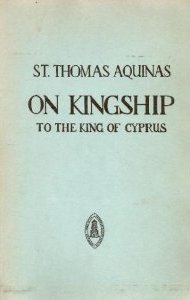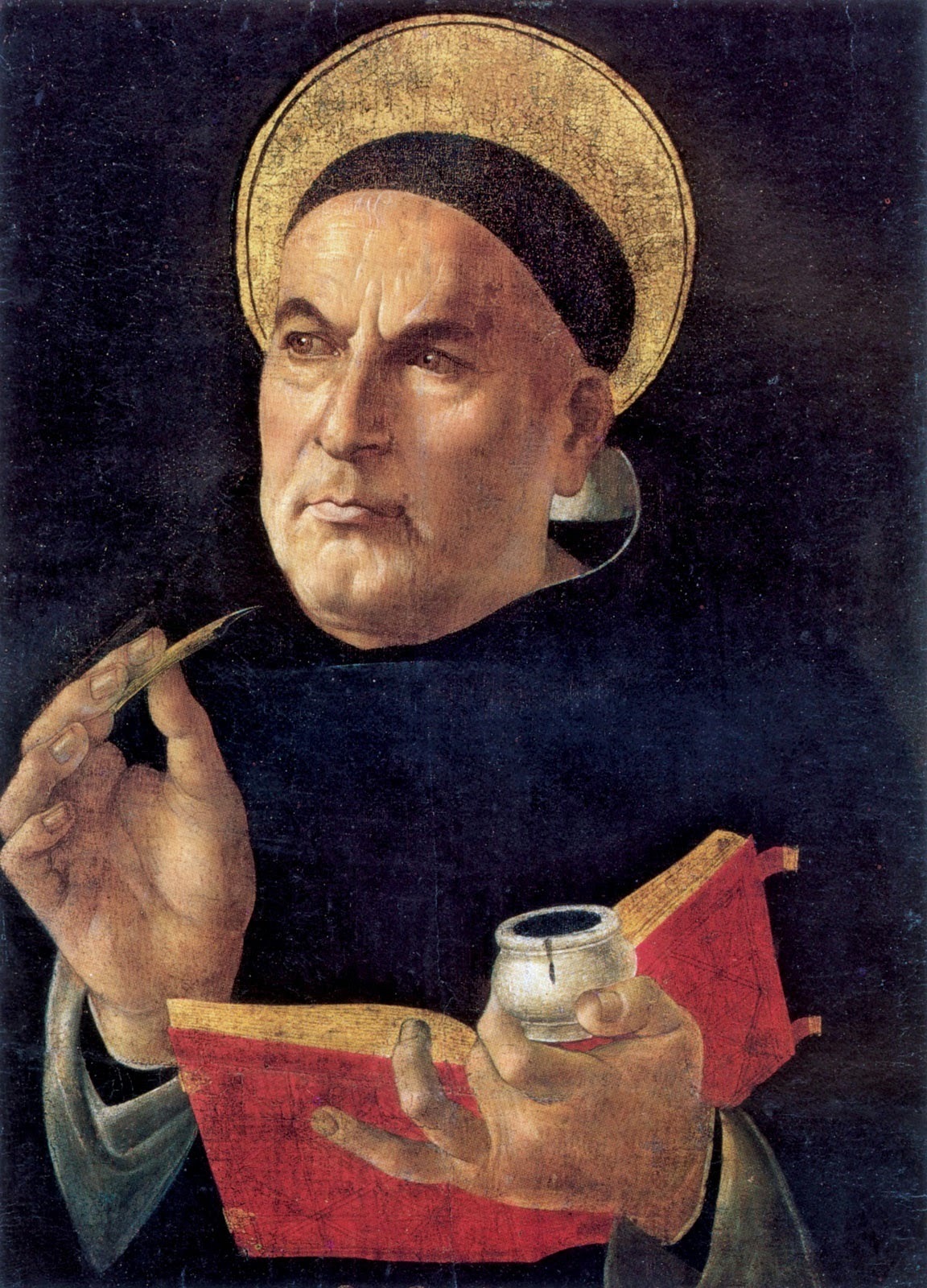
In the De regno, ad regem Cypri, an unfinished work, Thomas Aquinas planned to discuss two topics: the origin of kingly government and the things which pertain to the office of a king. In other words, it was to be both theoretical and practical. The idea of the origin of kingly government was not to be a historical discussion; rather it encompasses the problem of the rational "origin" of monarchy. Thomas' intention is to answer the question, "Why should one man in a given society be set over all other men." The theoretical section of the treatise also contains a long "digression" on the reward of a king who performs his duty well and, correspondingly, on the punishment of a tyrant who fails to do so. In Book Two, Aquinas starts by noting that the right practice of royal government is to be discovered by studying the model of God's foundation of the universe. But he also turns to the ecclesiastico-political teaching on the relations between the two powers; it becomes a treatise on how a king in Christendom should govern by being subject in spiritual matters to the "divine government administered by priests." The final section of Book Two deals with the monarch's duty particularly in regard to the foundation of a kingdom. The original printed Latin editions have proved too deficient to be the sole basis of this translation. Fr. Eschmann made a minute revision of the first translation against the readings of the manuscripts. The result is a reliable English version of Aquinas' own synopsis of his political notions, with a sufficient introduction, a list of relevant variants in the manuscripts, an appendix of parallel texts from other writings of Aquinas, and a useful bibliography.
Author

Philosophy of Saint Thomas Aquinas, a Dominican friar and theologian of Italy and the most influential thinker of the medieval period, combined doctrine of Aristotle and elements of Neoplatonism, a system that Plotinus and his successors developed and based on that of Plato, within a context of Christian thought; his works include the Summa contra gentiles (1259-1264) and the Summa theologiae or theologica (1266-1273). Saint Albertus Magnus taught Saint Thomas Aquinas. People ably note this priest, sometimes styled of Aquin or Aquino, as a scholastic. The Roman Catholic tradition honors him as a "doctor of the Church." Aquinas lived at a critical juncture of western culture when the arrival of the Aristotelian corpus in Latin translation reopened the question of the relation between faith and reason, calling into question the modus vivendi that obtained for centuries. This crisis flared just as people founded universities. Thomas after early studies at Montecassino moved to the University of Naples, where he met members of the new Dominican order. At Naples too, Thomas first extended contact with the new learning. He joined the Dominican order and then went north to study with Albertus Magnus, author of a paraphrase of the Aristotelian corpus. Thomas completed his studies at the University of Paris, formed out the monastic schools on the left bank and the cathedral school at Notre Dame. In two stints as a regent master, Thomas defended the mendicant orders and of greater historical importance countered both the interpretations of Averroës of Aristotle and the Franciscan tendency to reject Greek philosophy. The result, a new modus vivendi between faith and philosophy, survived until the rise of the new physics. The Catholic Church over the centuries regularly and consistently reaffirmed the central importance of work of Thomas for understanding its teachings concerning the Christian revelation, and his close textual commentaries on Aristotle represent a cultural resource, now receiving increased recognition.